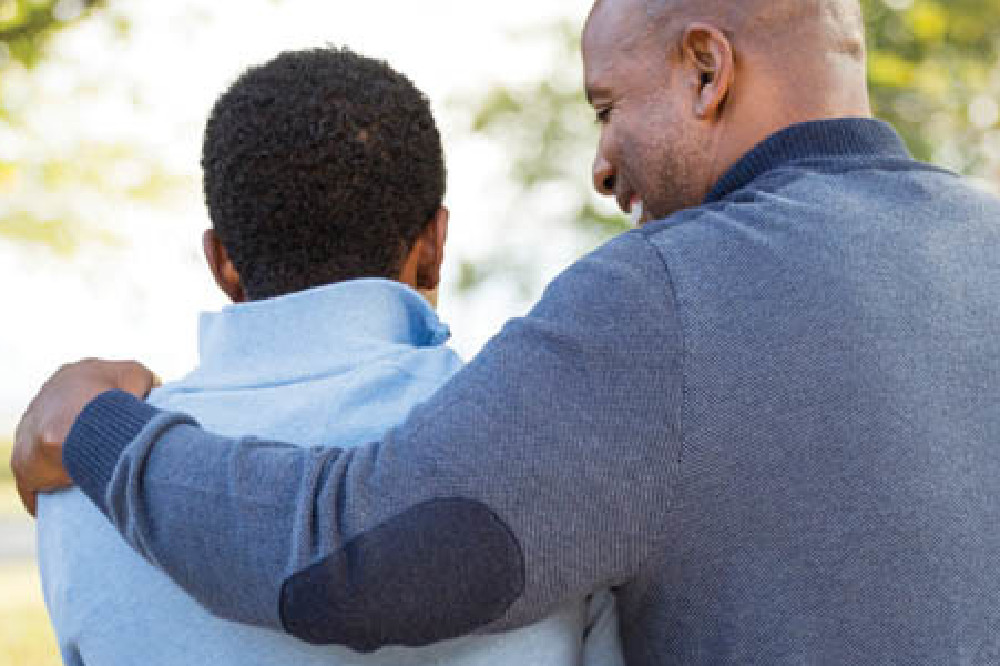From birth we constantly hug our babies, so why do we ever stop?
Fairy Non Bio has released some research regarding how many fathers hug their children, when they are most likely to stop doing so and whether dads of today show more affection than their fathers did to them.
Two thirds of dads say that they hug their children more than their own father hugged them. The reasons showed in the statistics that 53% said that they felt their kids were too old for hugs. Also, older dads over the age of 55 were the less likely to hug their children compared to the younger dads in the 18-34 age range.
The findings reveal a shift in the way fathers show affection to their children takes place around the time their children become teenagers (ages 14-18), from primarily hugging their children to verbally showing affection by giving them advice and guidance. In fact, at this age hugging drops right down from first place to fifth behind just listening to their children and trying to show attention for their interests.


Fathers stop hugging their children after the age of ten
David Beckham recently talked about the topic on This Morning. The footballer admitted that now that his son Brooklyn is getting older, he has noticed his affection towards his son 'embarrasses' him. He said "On one occasion, as Brooklyn was walking up the steps, I shouted 'I love you' to him, that didn't go down well."
Dr Simon Thompson, Psychologist and Neuroscientist, provides key analysis on why this change takes place and men stop hugging their children.
"We are familiar and aware of the change that puberty and teenage years can have on our children. Changes can frequently impact on our relationship with them. In particular, it is a part of growing up that makes us all more independent, that often means a clear demonstration of us standing on our own feet, and thus showing less tactile affection."
"Fathers and sons have special bonds and there is a hidden but understood recognition of continuity of the paternal line. Qualities such as strength and leadership are instilled in males from an early age and cultural values shape the way we respond to our children. Fathers see their sons growing up and taking on the mantle of leadership and subsequently, fatherhood. Part of this important role is letting go of the obvious link between a father and a son and hugging is seen as maintaining a strong connection but also a strong need from the son to the father."
"This need lessens as sons grow up as they need less reassurance from their fathers. However, the closeness and softness of the hug maintains a strong connection and bond between parents and children. It is perceived as safety and protection by the givers and the receivers."

But why is it so important for fathers to continue to hug their children through all life stages?
Simon Thompson comments on the science behind why physical contact from things like hugs can actually be crucial to a child's development.
"Hugs impact on us in a variety of ways. At the physical level, they provide us with tactile comfort, softness, and closeness. At the hormonal level, the body's natural chemicals are released for our emotional well-being and to protect us from harm; and the hug has become part of that in ensuring the necessary chemicals are released and regulated."
"For example, serotonin is released to control our mood (something that is irregular in those suffering from depression); cortisol is released to combat the effects of stress; and adrenaline is released to help us move from danger or to increase our feelings of excitement and happy anticipation."
"The hug is likely to cause us to elicit these chemicals so that we feel emotionally and physically protected and reassured by the protector (hugger)."
"We all need reassurance throughout different stages of our life and the hug has become more than a symbol of the reassurance and protection. It is needed by those who are vulnerable in that particular instant, but it has to be delivered by those trusted and respected in order to maximise the effect. If you have a strong relationship of trust and respect with them, then who better, than your father or mother?"

Fairy Non Bio want to encourage soft and close relationships, so they created a video of real life father Stephen and his grown up son Ben to remind parents everywhere to #Neverstophugging video. The story reveals what fathers and their children go through, how their relationship shifts and how the affects their relationship.
Scott Popham, spokesperson from Fairy Non Bio commented on the campaign. "Rooted in our passion for huggably soft clothes, Fairy Non Bio believe in the Power of Soft, and champion the idea that we should never stop hugging our babies - no matter how old they are. As the video and research suggest, nothing beats the power of a hug, so perhaps we should stop the handshakes and occasional chats and go back to embrace the tactile moments that bring us together."
Tagged in Parenting children Lifestyle Parenting News

